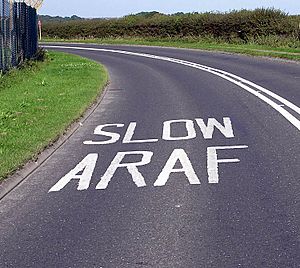Anglicisation facts for kids

Anglicisation (say "ANG-glih-sy-ZAY-shun") is when words, names, or phrases from another language are changed to sound more like English. This makes them easier for English speakers to say and understand. It's like giving a foreign word an "English makeover."
Contents
How Names Change
Many city names around the world have been anglicised. This means their original names were changed to fit English sounds and spellings better.
Famous City Examples
- The capital of Italy is Rome. In Italian, its name is Roma. English speakers say "Rome" because it sounds more natural to them.
- The city of Moscow in Russia is another example. In Russian, it's called Moskva (written as Москва using the Cyrillic alphabet). But in English, we say "Moscow" to make it simpler.
Old Names and New Names
Many of these changes happened a long time ago, sometimes hundreds of years ago. The original language might even have changed since then.
- The city of Turin in Italy's Piedmont region was once called Turin in the local Piedmontese language. Now, its official Italian name is Torino. English speakers still often use "Turin."
- Florence, another Italian city, is called Firenze in modern Italian. However, the English and French name "Florence" is actually closer to its very old Latin name, Florentia.
Why Names Change: Culture and Politics
Anglicisation isn't just about making words easier to say. It can also have political and cultural reasons.
Changing Place Names Back
For a long time, many place names in Wales and Scotland were anglicised. This happened when these areas were under English rule.
- Now, Wales and Scotland have their own local governments. They have started changing some official names back to their original Welsh or Scottish Gaelic forms.
- In Scotland, not many people speak Gaelic today. So, in most places, the English versions of names are still used a lot.
- However, in Wales, many people speak Welsh. Because of this, all road signs must be written in both English and Welsh. This helps everyone understand them.
See Also
 In Spanish: Anglicanización para niños
In Spanish: Anglicanización para niños

